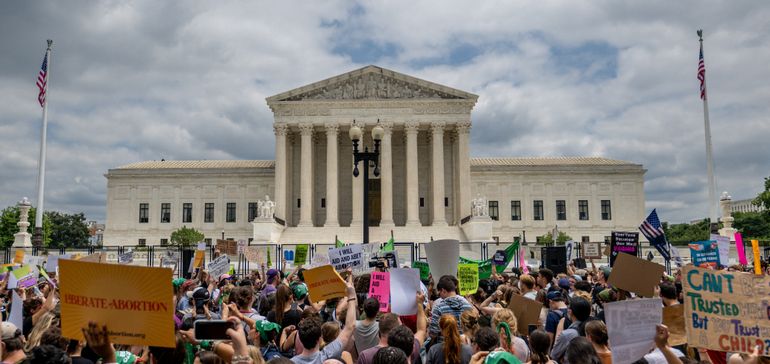
Ongoing coverage of Supreme Court’s decision overturning Roe v. Wade
The historic Supreme Court ruling overturning Roe v. Wade’s constitutional right to an abortion will create a seismic shift in the healthcare industry, according to providers, payers, healthcare organizations and legal experts.
Many provider groups protested the 6-3 decision, with the American Medical Association saying it was “deeply disturbed” by the court overturning Roe, which was precedent in the U.S. for almost half a century.
“With today’s decision, the Supreme Court has forced us, the clinicians, to betray the sacred covenant that we made to our patients,” Iffath Hoskins, president of the American College of Obstetricians and Gynecologists, said in a briefing Friday. “This is unethical. It is dangerous. And as I said earlier, it is plain wrong.”
With abortion legality now being determined by each individual state, providers face a difficult environment as they try to understand how laws will be implemented and enforced.
Abortion procedures, telehealth, contraception and clinician training are just some of the new hurdles that providers and physician groups face as states rapidly implement pre-approved abortion “trigger bans” and explore criminal prosecution for patients and doctors who attempt to receive or provide abortion care.
In an uncharted and fast-evolving landscape, states like Louisiana have had trigger laws temporarily blocked in court. A Florida judge is considering whether to block a recent law which would ban abortion after 15 weeks of pregnancy.
These stories are part of our evolving coverage on changing laws and policies across the country.